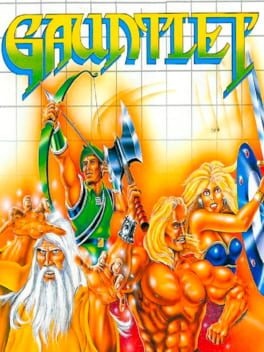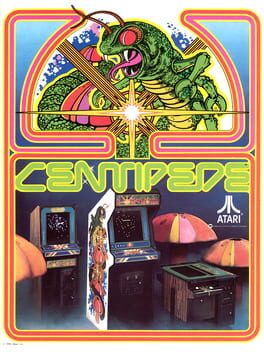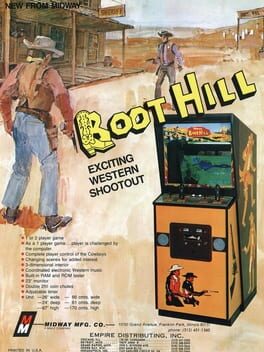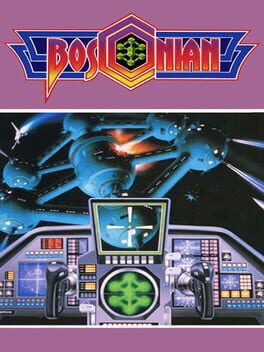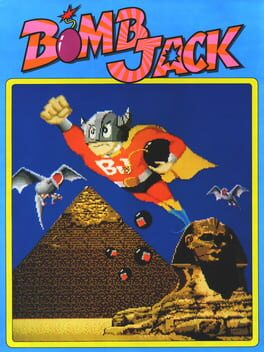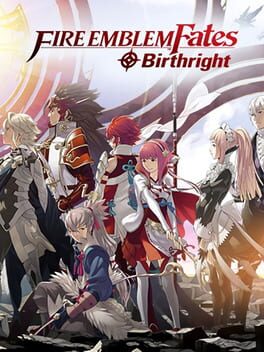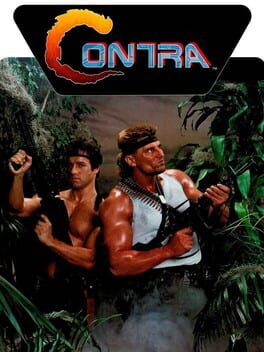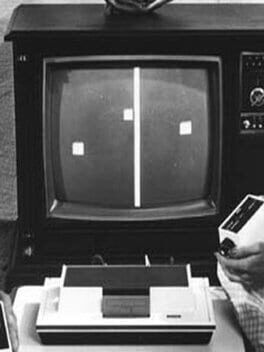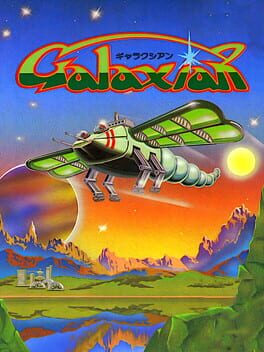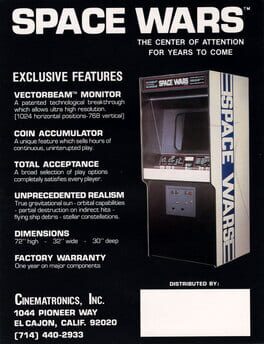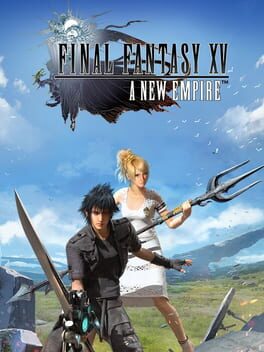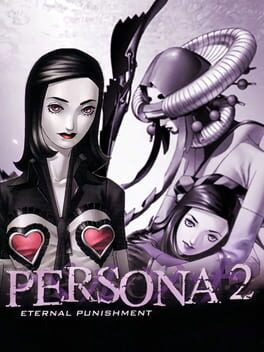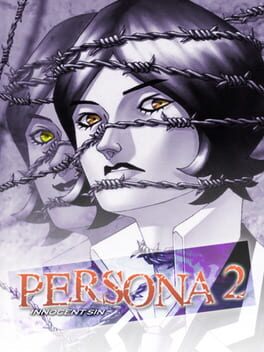DeviousJinjo
1985
1981
1977
1981
1984
Guess I originally decided not to log Birthright because I played it as DLC, but that's stupid.
Birthright is also stupid because all of Fates is stupid. As a player that is usually primarily motivated by narrative, I find it less offensive than Conquest and Revelation, but that's faint praise and so subjective as to be worthless anyway.
Birthright is also stupid because all of Fates is stupid. As a player that is usually primarily motivated by narrative, I find it less offensive than Conquest and Revelation, but that's faint praise and so subjective as to be worthless anyway.
My first playthrough of Final Fantasy VII Rebirth (there will be more) took over one hundred and thirty hours. I spent most of that time screaming.
I have complaints, make no mistake. The demo for Rebirth cooled me off so significantly that I almost started squirming about the fact that I had taken time off work for the full release. There were a few choice moments where unnecessary deviations from the original's storytelling, such as in one of the first battles of the entire game, left me sour and skeptical. I have read every Final Fantasy VII book, or at least some shitty fan translation thereof. I know just how bad ALL of the compilation stuff is, and even after what I felt was an adequate performance in Remake, I still had my doubts about how well the writing staff truly grasped their own story. Some of those minor changes made me question this, and at other times an overwrought orchestra drowned what should definitely be an emotional scene wrapped in golden silence, but I could not have possibly imagined the absolute mastery Rebirth has over the characters and tone of its source material.
The moment-to-moment character and scene writing in Rebirth is the best that Square has ever produced. I refuse to dilute that statement with qualifiers. It is as hilarious as it is impactful. It is a script that could only ever be written by someone who is in deep, sincere love with every one of its characters, as well as the quaint yet outlandish stupidity of 90's video games and everyone who loved them. It is a blatant refusal to tone down its freakish, lovable soul.
Rebirth is the best time I've had with a video game in almost a decade. It represents everything that anyone has ever liked about Final Fantasy VII, Kingdom Hearts II, Final Fantasy XV, or even Chrono Trigger. It is a non-stop landslide of delightful surprises, and it had me yelling aloud at what must have been close to once per hour. Its characterization is flawless, its music is divine, its visuals remain on the cutting edge, and for most of my seventeen-day playthrough I could not stop smiling.
I would be willing to name Rebirth my Game of the Year here and now, in March, by virtue of the writing's perfect audacity and unmatched playfulness alone. Fortunately for me, I don't have to pretend that gameplay doesn't matter. Remake's battle system was already the best Final Fantasy had ever seen, and one of the best in Action RPG history. In Rebirth it has been further improved by valuable tweaks to the various characters, new mechanics, and better encounter design. Considering that players spend probably a third or more of their time in Rebirth fighting, that's an obvious blessing.
In discussing the rest of Rebirth's gameplay activities, I'm going to play coy, as the surprises should remain surprises, but I will at least address the somewhat depressing presence of towers and map icons. To put it briefly and simply, they're fine. The concept itself may be played out, and some players may sigh in exhaustion at the very thought of them, but Rebirth's map icons are, for the most part, well-varied, entertaining, and unlikely to incite much tedium. They are distributed reasonably well and contain enough diverse flavors of interest to be worthy supplemental story material. Frankly, after finishing a marathon of tightly scripted narrative setpieces, it's nice to have some more "filler" activities to hang out with at one's leisure.
The greatest strength of the SNES and Playstation Final Fantasies was that they never lingered on any one thing long enough for the player to get bored of it. They were iconic, memorable setpiece parades, full of goofy, stupid minigames, bizarre sidequests, lovable characters, and eventually wild, confusing twists that online gorillas will fixate on in a way that is devastatingly literal and utterly oblivious to thematic intent. Many, including me, thought the exact cocktail represented here to be fully extinct. Having it served to me now, by largely the same people who wrote the recipe, roughly twenty years after I began to fear it lost, is rapturous. Rebirth has given me some of the most glorious highs of my entire gaming career.
For the first time since Final Fantasy X, I feel entirely satisfied with a full Final Fantasy release in the way I did when I was a child. It fills me with hope for the near future, and an absolute, unconditional confidence in the inevitable Final Fantasy X-3.
I have complaints, make no mistake. The demo for Rebirth cooled me off so significantly that I almost started squirming about the fact that I had taken time off work for the full release. There were a few choice moments where unnecessary deviations from the original's storytelling, such as in one of the first battles of the entire game, left me sour and skeptical. I have read every Final Fantasy VII book, or at least some shitty fan translation thereof. I know just how bad ALL of the compilation stuff is, and even after what I felt was an adequate performance in Remake, I still had my doubts about how well the writing staff truly grasped their own story. Some of those minor changes made me question this, and at other times an overwrought orchestra drowned what should definitely be an emotional scene wrapped in golden silence, but I could not have possibly imagined the absolute mastery Rebirth has over the characters and tone of its source material.
The moment-to-moment character and scene writing in Rebirth is the best that Square has ever produced. I refuse to dilute that statement with qualifiers. It is as hilarious as it is impactful. It is a script that could only ever be written by someone who is in deep, sincere love with every one of its characters, as well as the quaint yet outlandish stupidity of 90's video games and everyone who loved them. It is a blatant refusal to tone down its freakish, lovable soul.
Rebirth is the best time I've had with a video game in almost a decade. It represents everything that anyone has ever liked about Final Fantasy VII, Kingdom Hearts II, Final Fantasy XV, or even Chrono Trigger. It is a non-stop landslide of delightful surprises, and it had me yelling aloud at what must have been close to once per hour. Its characterization is flawless, its music is divine, its visuals remain on the cutting edge, and for most of my seventeen-day playthrough I could not stop smiling.
I would be willing to name Rebirth my Game of the Year here and now, in March, by virtue of the writing's perfect audacity and unmatched playfulness alone. Fortunately for me, I don't have to pretend that gameplay doesn't matter. Remake's battle system was already the best Final Fantasy had ever seen, and one of the best in Action RPG history. In Rebirth it has been further improved by valuable tweaks to the various characters, new mechanics, and better encounter design. Considering that players spend probably a third or more of their time in Rebirth fighting, that's an obvious blessing.
In discussing the rest of Rebirth's gameplay activities, I'm going to play coy, as the surprises should remain surprises, but I will at least address the somewhat depressing presence of towers and map icons. To put it briefly and simply, they're fine. The concept itself may be played out, and some players may sigh in exhaustion at the very thought of them, but Rebirth's map icons are, for the most part, well-varied, entertaining, and unlikely to incite much tedium. They are distributed reasonably well and contain enough diverse flavors of interest to be worthy supplemental story material. Frankly, after finishing a marathon of tightly scripted narrative setpieces, it's nice to have some more "filler" activities to hang out with at one's leisure.
The greatest strength of the SNES and Playstation Final Fantasies was that they never lingered on any one thing long enough for the player to get bored of it. They were iconic, memorable setpiece parades, full of goofy, stupid minigames, bizarre sidequests, lovable characters, and eventually wild, confusing twists that online gorillas will fixate on in a way that is devastatingly literal and utterly oblivious to thematic intent. Many, including me, thought the exact cocktail represented here to be fully extinct. Having it served to me now, by largely the same people who wrote the recipe, roughly twenty years after I began to fear it lost, is rapturous. Rebirth has given me some of the most glorious highs of my entire gaming career.
For the first time since Final Fantasy X, I feel entirely satisfied with a full Final Fantasy release in the way I did when I was a child. It fills me with hope for the near future, and an absolute, unconditional confidence in the inevitable Final Fantasy X-3.
1989
1987
What a quarter-munching bastard this thing must have been in the arcades...
Always harsh but never truly unfair, Contra encourages and rewards mastery in ways so much more satisfying than Ninja Gaiden or even Castlevania. It's fast-paced bare-knuckle action that might demoralize, but rarely ever frustrates. Even if the mountain before you does get the better of your confidence or you simply don't want to volunteer the time investment Contra asks of you, you have the accessibility option that is the infamous Konami code.
On top of it all, Contra packs one of the best early multiplayer experiences in gaming, provided you both have the incredible powers necessary for keeping track of the chaos onscreen.
Truly, a stunning achievement of its day, and yet still only a taste of the greatness toward which Konami was rocketing with full speed.
Edit: A small update here, the Arcade version is definitely less fair than the NES version, which I think might mark the first time in history that the home version of something is better than in the arcade.
Always harsh but never truly unfair, Contra encourages and rewards mastery in ways so much more satisfying than Ninja Gaiden or even Castlevania. It's fast-paced bare-knuckle action that might demoralize, but rarely ever frustrates. Even if the mountain before you does get the better of your confidence or you simply don't want to volunteer the time investment Contra asks of you, you have the accessibility option that is the infamous Konami code.
On top of it all, Contra packs one of the best early multiplayer experiences in gaming, provided you both have the incredible powers necessary for keeping track of the chaos onscreen.
Truly, a stunning achievement of its day, and yet still only a taste of the greatness toward which Konami was rocketing with full speed.
Edit: A small update here, the Arcade version is definitely less fair than the NES version, which I think might mark the first time in history that the home version of something is better than in the arcade.
1969
It boils my blood that most of the world knows only of Bushnell's hackery. Ralph Baer conceived of, completed, AND released Table Tennis with the Magnavox Odyssey all before Nolan Bushnell ordered his lackey to spawn his inferior coin-op sensation, but if there's one thing that Bushnell always had, it was business sense.
Table Tennis required the astronomical buy-in price of the Magnavox Odyssey, and Pong did not. Pong also serves from the middle of the court in a way that is certain to cause repeated cheap goals, doesn't include the free movement and weird trick-shots of Table Tennis, and makes horrendous noises. I think I'll give the credit to the guy who invented the home video game console, thanks.
Table Tennis required the astronomical buy-in price of the Magnavox Odyssey, and Pong did not. Pong also serves from the middle of the court in a way that is certain to cause repeated cheap goals, doesn't include the free movement and weird trick-shots of Table Tennis, and makes horrendous noises. I think I'll give the credit to the guy who invented the home video game console, thanks.
1979
1977
Alright, I'll be real with you. I'm only using Space Wars as an excuse to talk about Space War(!). My personal Game of the Year winners list starts with 1970, because I want to start it with a nice round decade-starter and because the 60's do not have enough games. I consider there to be exactly one victim of this decision, and that's Space War. Not only is it arguably the most important video game in history by default, it is, in all seriousness, a damned good first showing.
Space War was so good, right out of the gate, that it pretty much inspired an entire form of media, or at the very least, the action game mega-genre and the whole concept of a multiplayer video game. I don't just want to talk about Space War because it's historically important, I want to talk about Space War because it's ACTUALLY GOOD, and it deserves to be represented on this big, stupid list of mine, somewhere, somehow.
So, I'm hitching a ride on Space WarS, the fourth version of a game that was complete over a decade earlier. 1977 sucked. The leading competition for this spot by most standards is Zork, a game that I consider to be worse than Colossal Cave Adventure, its direct predecessor. The previous game I had in this spot was Heli-Shooter, one of Sega's crazy electro-mechanical contraptions which one could argue is "not a video game", is not something I have actually played, and isn't ACTUALLY that fun, just one example of a general genre of thing that was kind of impressive and already represented on the list elsewhere. The original version of Space War(!) is out of bounds, as explained. The next two are a prototype from 1971 that never "came out", and Nolan Bushnell's Computer Space. I already refused to give Bushnell any credit for stealing Pong, so I'm certainly not going to do that here, and I'm not about to let that other prototype beat out the original version of Oregon Trail for '71. After that comes OrbitWar, the networked PLATO computer replacement for the original which I can't imagine possibly ran well, in a year whose spot I'm also happy with.
So here we are, letting a very late, faithful remake of Space War(!) win 1977, a year where the competition sucks. Good job I guess, Space Wars!
EDIT: Oops! Turns out Oubliette (PLATO, 1977) is really, really cool, so now I have to actually talk about Space Wars as a separate entity from Space War! Space Wars takes Space War and cranks the speed up. This is both a blessing and somewhat of a curse. On the Vectrex version, with a much smaller play area and a completely ruthless AI opponent, the game is simply way, way too fast. All game modes tone down the central star so that it doesn't dominate every second of every battle in such a suffocating way, but on Game 9, The Only Correct Choice, it is still a threat and it has influence over the fight, making it an accommodator of trick shots and fancy flying. Space Wars also allows for each ship to take a few hits before the battle is lost, a change that allows for comebacks. Space Wars is, honestly, so frustratingly close to being incredible. If the arcade version had a single player option with decent AI and the star were just a little stronger and the ammo was unlimited and the shots were just a little bigger, we'd have a happy medium that I would boot up on a whim even today. Alas, we do not, and so Space War!'s potential continues unfulfilled.
And OOPS! Turns out Zork is a lot cooler than I was giving it credit for too.
Space War was so good, right out of the gate, that it pretty much inspired an entire form of media, or at the very least, the action game mega-genre and the whole concept of a multiplayer video game. I don't just want to talk about Space War because it's historically important, I want to talk about Space War because it's ACTUALLY GOOD, and it deserves to be represented on this big, stupid list of mine, somewhere, somehow.
So, I'm hitching a ride on Space WarS, the fourth version of a game that was complete over a decade earlier. 1977 sucked. The leading competition for this spot by most standards is Zork, a game that I consider to be worse than Colossal Cave Adventure, its direct predecessor. The previous game I had in this spot was Heli-Shooter, one of Sega's crazy electro-mechanical contraptions which one could argue is "not a video game", is not something I have actually played, and isn't ACTUALLY that fun, just one example of a general genre of thing that was kind of impressive and already represented on the list elsewhere. The original version of Space War(!) is out of bounds, as explained. The next two are a prototype from 1971 that never "came out", and Nolan Bushnell's Computer Space. I already refused to give Bushnell any credit for stealing Pong, so I'm certainly not going to do that here, and I'm not about to let that other prototype beat out the original version of Oregon Trail for '71. After that comes OrbitWar, the networked PLATO computer replacement for the original which I can't imagine possibly ran well, in a year whose spot I'm also happy with.
So here we are, letting a very late, faithful remake of Space War(!) win 1977, a year where the competition sucks. Good job I guess, Space Wars!
EDIT: Oops! Turns out Oubliette (PLATO, 1977) is really, really cool, so now I have to actually talk about Space Wars as a separate entity from Space War! Space Wars takes Space War and cranks the speed up. This is both a blessing and somewhat of a curse. On the Vectrex version, with a much smaller play area and a completely ruthless AI opponent, the game is simply way, way too fast. All game modes tone down the central star so that it doesn't dominate every second of every battle in such a suffocating way, but on Game 9, The Only Correct Choice, it is still a threat and it has influence over the fight, making it an accommodator of trick shots and fancy flying. Space Wars also allows for each ship to take a few hits before the battle is lost, a change that allows for comebacks. Space Wars is, honestly, so frustratingly close to being incredible. If the arcade version had a single player option with decent AI and the star were just a little stronger and the ammo was unlimited and the shots were just a little bigger, we'd have a happy medium that I would boot up on a whim even today. Alas, we do not, and so Space War!'s potential continues unfulfilled.
And OOPS! Turns out Zork is a lot cooler than I was giving it credit for too.
I like to tell people that Persona 1 is a Shin Megami Tensei game, Persona 2 is a Final Fantasy Game, and Persona 3 is a Persona game. Eternal Punishment complicates this little mantra significantly, because it is WAY more of a Shin Megami Tensei game in its design than Innocent Sin is.
When I say that, I mean it has more Matadors. A "Matador", for the record, is when Atlus stops the player with a mandatory boss who is clearly meant to be defeated in one particular way which will almost certainly require grinding. The bosses can be defeated without employing the one, clear solution, yes, but doing so is a miserable experience, and often one that leans heavily on RNG.
I hate Matadors. They are probably my least favorite thing about the entire wider SMT franchise. This, I realize, is far from universal. Many lovers of SMT are drawn to it specifically because of these puzzle bosses challenging them to rifle through their drawer until they find a suitable key. I however despise being sent away to spend potentially several hours sourcing new party members, and several more in trial and error if I don't open up the wikis and charts. I hate being told to "go get the thing." I want to be able to figure out a solution with what I have, but in Eternal Punishment and often elsewhere in SMT, "what I have" is barely capable of inflicting any damage at all.
Over the course of Eternal Punishment, on the PSP's Normal mode, despite dutifully playing out all of my prescribed random encounters on my way through every dungeon, I had to grind intensely at four separate points in the story. When I say "had to" I do not mean that I had to do this to match up to the hilariously inflated level ranges that online guides always provide. I remained ten or more levels under every boss's level and every guide's recommendation for the entire run. I had to grind like that just to keep up with being UNDERLEVELED. In order to fuse the personas that could give me the puzzle boss gimmick keys I needed and actually be useful with them, I often needed to slam out a full ten levels. I can and do hold this EXP curve against Eternal Punishment. This is a Persona 1 level of keep-up grinding that is on display by the end of the game. I'm sure that the veterans who knew about the double experience fortune... thing that you can do from the start and who spent time hunting down every rare encounter and who tracked down all the sidequests experienced a lot less of this, but even if that remedies the situation, having such things be necessary to finish a playthrough isn't great either.
To rub more salt in the grinding wound, players need EXP, yes, but they also need cards, and they cannot get those two things at the same time. The negotiation card grind is a completely parallel activity that cannot be done simultaneously with actually killing things for EXP. This means that pretty much every time there's a grind to be done, there are actually two grinds to be done... and that's if you don't have to fish for material cards from rare encounters.
If I did not have access to a great auto-battle system, the ability to turn off battle animations, and an emulator's fast-forward function, I imagine that I would not have finished Eternal Punishment, and that would have been a massive shame, because its story is at least as good as Innocent Sin's and it's better paced. It walks a wonderfully fine line between reusing old environments and inventing new ones, and I'm so glad that I played it. I just can't see myself wanting to do it again.
I actually lowered the entry bar on my silly little "five-star club" in order to let Innocent Sin into it. It got away with it because while some of its systems were definitely rough, they could mostly be ignored, and the PS1 version kept things engaging enough when those questionable systems WERE being ignored that the ultimate experience was still fantastic. I certainly enjoyed my time with Eternal Punishment, but not without some very significant things repeatedly getting in the way. Even still, I recognize that a lot of my grievances are tied to my preference for difficulty being delivered IN battles, rather than scavenger hunting outside them. There exists a legion of players who love the latter, and I'm not about to argue with them.
I admire Eternal Punishment's commitment to the systems that Innocent Sin so overlooked, but I have to admit, I had a better time when they were largely being ignored.
When I say that, I mean it has more Matadors. A "Matador", for the record, is when Atlus stops the player with a mandatory boss who is clearly meant to be defeated in one particular way which will almost certainly require grinding. The bosses can be defeated without employing the one, clear solution, yes, but doing so is a miserable experience, and often one that leans heavily on RNG.
I hate Matadors. They are probably my least favorite thing about the entire wider SMT franchise. This, I realize, is far from universal. Many lovers of SMT are drawn to it specifically because of these puzzle bosses challenging them to rifle through their drawer until they find a suitable key. I however despise being sent away to spend potentially several hours sourcing new party members, and several more in trial and error if I don't open up the wikis and charts. I hate being told to "go get the thing." I want to be able to figure out a solution with what I have, but in Eternal Punishment and often elsewhere in SMT, "what I have" is barely capable of inflicting any damage at all.
Over the course of Eternal Punishment, on the PSP's Normal mode, despite dutifully playing out all of my prescribed random encounters on my way through every dungeon, I had to grind intensely at four separate points in the story. When I say "had to" I do not mean that I had to do this to match up to the hilariously inflated level ranges that online guides always provide. I remained ten or more levels under every boss's level and every guide's recommendation for the entire run. I had to grind like that just to keep up with being UNDERLEVELED. In order to fuse the personas that could give me the puzzle boss gimmick keys I needed and actually be useful with them, I often needed to slam out a full ten levels. I can and do hold this EXP curve against Eternal Punishment. This is a Persona 1 level of keep-up grinding that is on display by the end of the game. I'm sure that the veterans who knew about the double experience fortune... thing that you can do from the start and who spent time hunting down every rare encounter and who tracked down all the sidequests experienced a lot less of this, but even if that remedies the situation, having such things be necessary to finish a playthrough isn't great either.
To rub more salt in the grinding wound, players need EXP, yes, but they also need cards, and they cannot get those two things at the same time. The negotiation card grind is a completely parallel activity that cannot be done simultaneously with actually killing things for EXP. This means that pretty much every time there's a grind to be done, there are actually two grinds to be done... and that's if you don't have to fish for material cards from rare encounters.
If I did not have access to a great auto-battle system, the ability to turn off battle animations, and an emulator's fast-forward function, I imagine that I would not have finished Eternal Punishment, and that would have been a massive shame, because its story is at least as good as Innocent Sin's and it's better paced. It walks a wonderfully fine line between reusing old environments and inventing new ones, and I'm so glad that I played it. I just can't see myself wanting to do it again.
I actually lowered the entry bar on my silly little "five-star club" in order to let Innocent Sin into it. It got away with it because while some of its systems were definitely rough, they could mostly be ignored, and the PS1 version kept things engaging enough when those questionable systems WERE being ignored that the ultimate experience was still fantastic. I certainly enjoyed my time with Eternal Punishment, but not without some very significant things repeatedly getting in the way. Even still, I recognize that a lot of my grievances are tied to my preference for difficulty being delivered IN battles, rather than scavenger hunting outside them. There exists a legion of players who love the latter, and I'm not about to argue with them.
I admire Eternal Punishment's commitment to the systems that Innocent Sin so overlooked, but I have to admit, I had a better time when they were largely being ignored.
URGENT: For the love of god, play the PS1 original, not the PSP version. I have deleted the log that I originally posted here and am re-posting this now in hopes of getting eyes on this and counterbalancing any misunderstanding that it may have propagated. As it turns out, the entire crux of my disappointment with Innocent Sin is the PSP version's doing.
On PSP, REGARDLESS of difficulty selection, Innocent Sin's gameplay is a desert one must cross to reach the oases of its wonderful story. On PS1, Innocent Sin's battles are NOT exclusively a waste of your time! It's NOT a small difference! It turns out that the auto-battle system used to NOT SUCK, and there used to be some modicum of ACTUAL TENSION in some of the fights!!! I honestly feel cheated by having the PSP version taint my first experience! The PS1 version is as good as the PSP version of Eternal Punishment, maybe even better!
It's not a simple matter of being "too easy." The PSP version of Innocent Sin traps you in a position where the encounter rate is disruptively high and then presents you with two options for achieving the forgone conclusion of your victory in any of these encounters:
Option 1: Navigate the menus for each character every turn and tell them each to do the obviously optimal thing every turn with no interesting variations because the only thing enemies can do in their own defense is annoy you but they have too much health to courteously die in a timely fashion,
or Option 2: Press Triangle and sit patiently while the game resolves the encounter on its own in the slowest, most painful way possible, including all of the bosses, with pretty much complete, unquestionable safety.
On the PS1, the game is DESIGNED around a WAY better auto-battle system, and things can actually hurt you, so you have to pay attention! Even if the fights aren't much more interesting on PS1, they fly by so much faster that it's hard to complain about them. It's still by no means difficult, but it at least provides Final Fantasy levels of combat engagement now! In fact, the game clicks into place in almost the exact same ways that a PS1 Final Fantasy game does, as a breezy trip through a meticulously told and thematically resonant story, with gameplay that doesn't turn any heads, but doesn't get in the way of a good time either.
It feels at least slightly insane to bump Innocent Sin from the lowly score it had all the way up to this, but everything wrong with it is in its gameplay mechanics, and on PS1 almost everything I held against the PSP version is a non-issue. It still doesn't sit right with me that the easiest path through the game means never even setting foot in the Velvet Room, and having to grind out demon negotiations if you choose to use it sucks, but compared to my previous problems of constant, meaningless, tedious encounters, that's practically nothing.
Am I willing to give it the full-on five star treatment? Not quite. The design is still too shaky for that. Aside from the Velvet Room thing, money and SP still grow on trees in a way that makes dungeoneering and shopping even less interesting than it is in, say, Final Fantasy VII, and something like materia is enough to blow this implementation of the Velvet Room out of the water.
The question is, will Eternal Punishment bring enough tension back into the battles to overpower those other flaws and win my full marks?
EDIT... again:
The balance is fine. I'm nearing the end of my replay on PS1 now, and I've totally come around on the battle system and its balance. The gap between PS1 Innocent Sin and PSP Eternal Punishment is small, and there's no need for Eternal Punishment to "fix" it. I have however decided that yeah, I do have to dock a bit for pacing reasons. The beginning of the game absolutely knocks it out of the park, but the middle drags. It really does start wearing you down when Lisa's spotlight arc plays out across three of the blander dungeons with only brief glimpses of story in between them. The mundane setting plays a hand in this, because while it may be interesting to see a game turn an exercise gym into a dungeon, it ends up being the fifth or sixth "normal building" dungeon the player has navigated in a row. On top of this... like, the air raid shelter just sorta sucks, dude. Not letting you save before you fight King Leo after you just did a whole dungeon and a bunch of cutscenes? Also sucks. I think there are enough low points here to hold this back from really trading blows with something like Final Fantasy VII or even IX. I guess this really IS an alternate universe Final Fantasy VIII...
Edit AGAIN:
So at the end of this journey, of my many initial criticisms, the following still stand:
-The third or so of the game after the first two hours drags.
-Minor setpiece groaning about King Leo and Air Raid shelter.
-Negotiation sucks and isn't fun to grind so Velvet Room rots.
-For MOST of the game SP is a non-factor (not endgame).
That's... not a long list, and the impact of everything on it isn't really much bigger than say, the overbloated animations and trance system failures of FFIX, another game that I've recently decided I can't deny a spot in the five-star club. The honest truth is that Innocent Sin is so cosmically far ahead of its time in terms of writing that it should take a lot more than that petty list of grievances to lower its standing.
On PSP, REGARDLESS of difficulty selection, Innocent Sin's gameplay is a desert one must cross to reach the oases of its wonderful story. On PS1, Innocent Sin's battles are NOT exclusively a waste of your time! It's NOT a small difference! It turns out that the auto-battle system used to NOT SUCK, and there used to be some modicum of ACTUAL TENSION in some of the fights!!! I honestly feel cheated by having the PSP version taint my first experience! The PS1 version is as good as the PSP version of Eternal Punishment, maybe even better!
It's not a simple matter of being "too easy." The PSP version of Innocent Sin traps you in a position where the encounter rate is disruptively high and then presents you with two options for achieving the forgone conclusion of your victory in any of these encounters:
Option 1: Navigate the menus for each character every turn and tell them each to do the obviously optimal thing every turn with no interesting variations because the only thing enemies can do in their own defense is annoy you but they have too much health to courteously die in a timely fashion,
or Option 2: Press Triangle and sit patiently while the game resolves the encounter on its own in the slowest, most painful way possible, including all of the bosses, with pretty much complete, unquestionable safety.
On the PS1, the game is DESIGNED around a WAY better auto-battle system, and things can actually hurt you, so you have to pay attention! Even if the fights aren't much more interesting on PS1, they fly by so much faster that it's hard to complain about them. It's still by no means difficult, but it at least provides Final Fantasy levels of combat engagement now! In fact, the game clicks into place in almost the exact same ways that a PS1 Final Fantasy game does, as a breezy trip through a meticulously told and thematically resonant story, with gameplay that doesn't turn any heads, but doesn't get in the way of a good time either.
It feels at least slightly insane to bump Innocent Sin from the lowly score it had all the way up to this, but everything wrong with it is in its gameplay mechanics, and on PS1 almost everything I held against the PSP version is a non-issue. It still doesn't sit right with me that the easiest path through the game means never even setting foot in the Velvet Room, and having to grind out demon negotiations if you choose to use it sucks, but compared to my previous problems of constant, meaningless, tedious encounters, that's practically nothing.
Am I willing to give it the full-on five star treatment? Not quite. The design is still too shaky for that. Aside from the Velvet Room thing, money and SP still grow on trees in a way that makes dungeoneering and shopping even less interesting than it is in, say, Final Fantasy VII, and something like materia is enough to blow this implementation of the Velvet Room out of the water.
The question is, will Eternal Punishment bring enough tension back into the battles to overpower those other flaws and win my full marks?
EDIT... again:
The balance is fine. I'm nearing the end of my replay on PS1 now, and I've totally come around on the battle system and its balance. The gap between PS1 Innocent Sin and PSP Eternal Punishment is small, and there's no need for Eternal Punishment to "fix" it. I have however decided that yeah, I do have to dock a bit for pacing reasons. The beginning of the game absolutely knocks it out of the park, but the middle drags. It really does start wearing you down when Lisa's spotlight arc plays out across three of the blander dungeons with only brief glimpses of story in between them. The mundane setting plays a hand in this, because while it may be interesting to see a game turn an exercise gym into a dungeon, it ends up being the fifth or sixth "normal building" dungeon the player has navigated in a row. On top of this... like, the air raid shelter just sorta sucks, dude. Not letting you save before you fight King Leo after you just did a whole dungeon and a bunch of cutscenes? Also sucks. I think there are enough low points here to hold this back from really trading blows with something like Final Fantasy VII or even IX. I guess this really IS an alternate universe Final Fantasy VIII...
Edit AGAIN:
So at the end of this journey, of my many initial criticisms, the following still stand:
-The third or so of the game after the first two hours drags.
-Minor setpiece groaning about King Leo and Air Raid shelter.
-Negotiation sucks and isn't fun to grind so Velvet Room rots.
-For MOST of the game SP is a non-factor (not endgame).
That's... not a long list, and the impact of everything on it isn't really much bigger than say, the overbloated animations and trance system failures of FFIX, another game that I've recently decided I can't deny a spot in the five-star club. The honest truth is that Innocent Sin is so cosmically far ahead of its time in terms of writing that it should take a lot more than that petty list of grievances to lower its standing.
